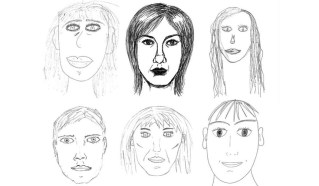Humans
Sign up for our newsletter
We summarize the week's scientific breakthroughs every Thursday.
-
 Health & Medicine
Health & MedicineHealth care workers test negative for MERS virus
Two health care workers who reportedly fell ill with flulike symptoms after coming in contact with a patient suffering from MERS have tested negative for the virus, according to health officials.
-
 Health & Medicine
Health & MedicineSmall molecule aids recovery from radiation sickness
A drug for radiation sickness is a small step toward the larger goal of making effective treatments for human radiation exposure, whether as a medical treatment or after a nuclear disaster.
-
 Health & Medicine
Health & MedicineTwo U.S. health care workers fall ill after treating patient with MERS
Two Florida hospital employees have reportedly fallen ill with flulike symptoms after coming in contact with a patient suffering from MERS.
-
 Health & Medicine
Health & MedicineRed wine’s resveratrol not linked to healthier life
Consuming the compound resveratrol in foods is thought to improve health, but it may not actually have anti-inflammatory or anticancer effects.
-
 Health & Medicine
Health & MedicineSecond MERS case in U.S. confirmed
A second health care worker has been diagnosed with MERS coronavirus in the United States.
-
 Psychology
PsychologyFarming practices have shaped thinking styles
The different levels of cooperation required to grow rice and wheat have sown psychological differences within China and possibly between East Asia and the West.
By Bruce Bower -
 Health & Medicine
Health & MedicinePoor ventilation in schools may spur TB spread
Researchers found high carbon dioxide levels in South African classrooms, suggesting that poor ventilation may contribute to tuberculosis transmission.
By Nathan Seppa -
 Psychology
PsychologyWhy every face you draw looks a little Neandertal
Just about everyone draws faces with the eyes too high and a low Neandertal forehead, maybe because of the way we perceive the shape of the head.
-
 Anthropology
AnthropologyPeruvian glyphs pointed way to ancient celebrations
At least 2,300 years ago, Paracas people in the Chincha Valley of Peru were engineering their landscape to keep time and host ritual and social activities.
-
 Health & Medicine
Health & MedicineU.S. patient with MERS virus is on the mend
A man in Indiana does not seem to have spread the potentially deadly respiratory illness.
-
 Health & Medicine
Health & MedicineMassachusetts insurance mandate lowers death rate
Since “Romneycare” was phased in, mortality fell by 2.9 percent.
By Nathan Seppa -
 Health & Medicine
Health & MedicineMom’s nutrition puts a stamp on baby’s DNA
A new study is the latest in a growing list of how the environment sculpts a person’s epigenome.